第28章 Partiality(2)
The multitude reason but ill,and therefore may be well suspected and cannot be relied on nor should be followed as a sure guide;but philosophers who have quitted the orthodoxy of the community and the popular doctrines of their countries have fallen into as extravagant and as absurd opinions as ever common reception countenanced.It would be madness to refuse to breathe the common air or quench one's thirst with water because the rabble use them to these purposes;and if there are conveniences of life which common use reaches not.it is not reason to reject them because they are not grown into the ordinary fashion of the country and every villager does not know them.
Truth,whether in or out of fashion,is the measure of knowledge and the business of the understanding;whatsoever is besides that,however authorized by consent or recommended by rarity,is nothing but ignorance or something worse.
Another sort of partiality there is whereby men impose upon themselves and by it made their reading little useful to themselves;I mean the making use of the opinions of writers and laying stress upon their authorities wherever they find them to favor their own opinions.
There is nothing almost has done more harm to men dedicated to letters than giving the name of study to reading and making a man of great reading to be the same with a man of great knowledge.or at least to be a title of honor.All that can be recorded in writing are only facts or reasonings.Facts are of three sorts:
1.Merely of natural agents.observable in the ordinary operations of bodies one upon another,whether in the visible course of things left to themselves,or in experiments made by men applying agents and patients to one another after a peculiar and artificial manner.
2.Of voluntary agents,more especially the actions of men in society,which makes civil and moral history.
3.Of opinions
In these three consists.as it seems to me,that which commonly has the name of learning;to which perhaps some may add a distinct head of critical writings,which indeed at bottom is nothing but matter of fact and resolves itself into this,that such a man or set of men used such a word or phrase in such a sense,i.e.that this made such sounds the marks of such ideas.
Under reasonings I comprehend all the discoveries of general truths made be human reason,whether found by intuition,demonstration or probable deductions.And this is that which is,if not alone knowledge (because the truth or probability of particular propositions may be known too),suet is,as may be supposed,most properly the business of those who pretend to improve their understandings and make themselves knotting by reading.
Books and reading are looked upon to be the great helps of the understanding and instruments of knowledge,as it must be allotted that they are;and yet Ibeg leave to question whether these do not prove a hindrance to many and keep several bookish men from attaining to solid and true knowledge.
This,I think,I may be permitted to say,that there is no part wherein the understanding needs a more careful and wary conduct than in the use of books;without which they will prove rather innocent amusements than profitable employments of our time,and bring but small additions to our knowledge.